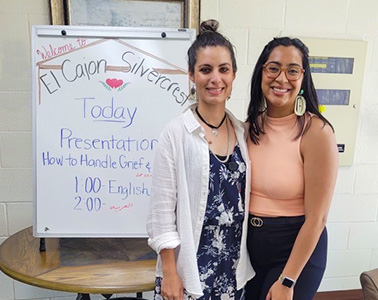
Breaking Down Barriers is an outreach and education program that works with Black, Indigenous, and People of Color (BIPOC) and the LGBTQIA+ community to talk about mental wellness. Through educational workshops and events, we discuss the stigma of mental health and connect participants to helpful resources. We also provide cultural humility/cultural competency training to community members and providers who work with these populations. We want to normalize conversations about mental wellness so everyone can thrive.
This is strictly an educational program, and we do not provide diagnoses or serve as licensed therapists.
Every community has a different perspective on mental wellness. We’re here to amplify your voice and add our expertise to the conversations already happening in our communities. Our educational workshops use a strengths-based approach to help you develop a positive relationship with your own mental health and support the wellness of your loved ones. Presentations are available in English, Spanish, and Arabic. Interpretation is available in other languages as needed. The workshop content can be adapted for youth, adults, and older adults/elders.
Here’s a few topics we can talk about:
Community Based Workshops
This workshop is intended for community members who would like to understand some of the first steps in finding a therapist. We will discuss the types of therapists, some popular approaches to treatment, what a first session might look like and tips for identifying if a therapist is a good match.
Exploring nurturing relationships within our lives and recognizing the importance of the relationship with ourselves. We can discuss boundaries, exploring times to say “yes” or “no”, and cultivating insight on all our unique relationships.
This workshop centers exploring Queer self-love through our identities and making space to connect with one another and learn some of our Queer diverse pre-colonial history.
This workshop asks questions that help us remember, honor, and reclaim culturally significant healing and self-care practices. We will highlight tools around somatic awareness and include practical ways to introduce them in your life to reduce fatigue and avoid burnout. There will be a meditation and grounding practice incorporated into this workshop.
We will discuss self-care and community care practices that individual participants can engage in to support their own well-being. Workshops may also discuss topics related to anxiety, depression, or reducing burnout.
We will highlight the different roots of stress faced by the youth in our communities and how it shows up in the body somatically. Youth will gain a deeper understanding of how stress and stigma impact their emotional needs and daily life, while exploring different stress reduction practices to incorporate.
We will explore methods for setting and accomplishing professional and personal goals using SMART goals and objectives to serve as the foundation for your vision board. We’ll also discuss the basics of Neuroscience of Visualization, followed by a guided visualization to help bring your goals to fruition.
This is an Indigenous centered workshop focusing on diverse cultural methods while using mind-body practices to reduce stress. Indigenous mindfulness practices support being present in one’s body and can encompass a variety of traditional methods that foster present moment awareness, connection to nature, and community well-being. We close with a guided mediation.
Provider Based Workshops
We will review the concepts of historical and intergenerational trauma, and discuss how historical events (e.g. colonialism, slavery, war, segregation) impact QT & Black, Indigenous, and People of Color mental health and wellbeing. This training can be provided to community members to support them in understanding and articulating the ways that their families and/or communities have been impacted by historical trauma. The training can also be adapted for providers to help them understand the impact of past trauma on clients and communities.
*Note: the communities discussed will depend on the presenters available*
These trainings are for service providers who would like to learn best practices for working with community members that may identify as African American/Black; African/Refugee; Asian/Pacific Islander; Latine/x; LGBTQ+; Middle Eastern; and/or Native American/Indigenous. Breaking Down Barriers staff will lead a training course (typically 1.5-2 hours) focused on 1 of the identified communities listed above. The training will include a brief history, cultural norms and practices, terminologies and definitions, data on mental health, and sensitive practices to be aware of when working with a particular community. We will also offer an interactive portion where you can ask questions and discuss with others, ways to show support for the community.
This is an introductory workshop for service providers who would like to better understand how communities of color face systemic intersectional issues that negatively impact their mental health and wellbeing. This training will help providers establish a foundation towards understanding oppressive systems and implementing anti-racism practices, self-reflection, and personal critique as related to mental health.
We will explore the importance of the Indian Child Welfare Act (ICWA) and why it is crucial for Native and non-Native people to understand the ways that ICWA addresses the historical and ongoing disproportionate removal of Native children from their families and communities and how this continues to affect their mental health. We will offer an overview of historical trauma, key provisions of ICWA, and how it is implemented within our communities and tribes. ICWA’s impact extends beyond the immediate protection of Native children; it also addresses broader issues of cultural preservation, tribal sovereignty, and the systemic biases that have historically impacted Native communities. By understanding ICWA, we can contribute to a more just and equitable child welfare system for all.
*Note: All workshops can be adapted to fit your community or organizational needs.*
Our Outreach Team collaborates with community organizations to develop and present workshops. We facilitate stigma reducing and interactive conversations to normalize mental health in a supportive environment, through a culturally relevant lens. No matter your current knowledge of mental health topics, our program is accessible for everyone and is tailored to reflect the values of our communities.
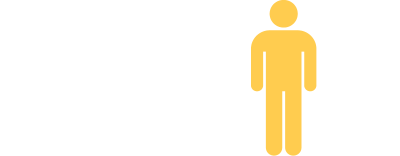
1 in 5
adults in the U.S. experience mental health issues in any given year*
*National Alliance on Mental Illness
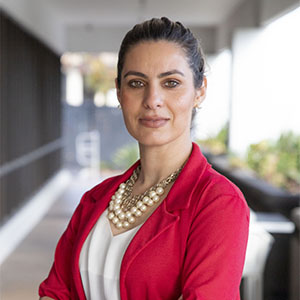
Dalia Alabid
Dalia Alabid (she/her) is the Mental Health Educator and Outreach Coordinator for the Middle Eastern Community. She holds a bachelor’s degree in psychology and two associate degrees in social behavioral sciences. She assisted the U.S. Army in their mission in Iraq and worked as a Refugee Case Manager. In her spare time, she enjoys spending quality time with her family & friends, being in nature, and reading.

Theo Cunningham
Theo Cunningham (He/Him) is the Mental Health Education & Outreach Coordinator for the African American/Black community. A U.S. Navy veteran with (AS) degree in Medical Specialties & (BS) in Health Administration, he’s a dedicated advocate focused on public health, health equity, and community engagement for underserved populations. Outside of work, Theo enjoys traveling and spending quality time with his daughter.
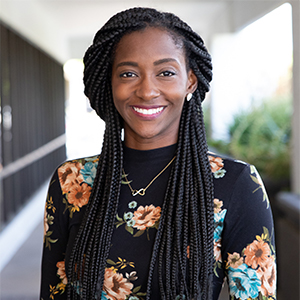
Spshelle Faith Gordon
Spshelle Faith Gordon (she/her) is the Program Supervisor and Mental Health Educator and Outreach Coordinator for the African American/Black Community. She is a Marine Corps veteran who specializes in mental health and public health. Outside of work, Spshelle enjoys time with loved ones and volunteering.
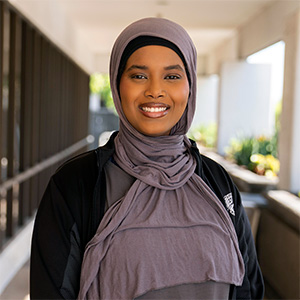
Ayani Hashi
Ayani Hashi (she/her) is the Mental Health Educator and Outreach Coordinator for the African Refugee Community. She holds an undergraduate degree in Public Health, School Counseling, and Social Work, as well as a Master’s in Nonprofit Administration. As a Somali refugee born in Kenya and having lived in the United States for 20 years she brings both personal and professional perspectives to her work. Beyond her professional background, she is passionate about climate change, gardening, reading, world-building, and video games.
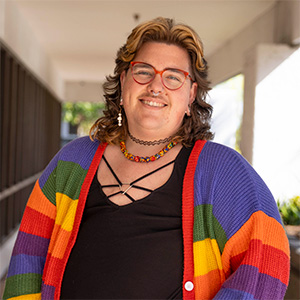
Kellen Hopp
Kellen Hopp (she/they) is the Mental Health Educator and Outreach Coordinator for the LGBTQ+ Community. As a nonbinary person, she is a proud member of the queer community. They have a Masters of Public Health and a passion for educating about queer/trans (QT) culture and identities. Kellen grew up in Southern California, moved to San Francisco for college and has happily been in San Diego for 5 years. Outside of work she loves being a cat parent, playing Dungeons and Dragons, and hosting events for their QT community.
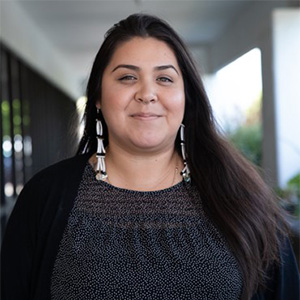
Marcia Hunter
Marcia Hunter (she/her) is the Data Specialist for Breaking Down Barriers. She is a proud member of the Three Affiliated Tribes from North Dakota and is of Arikara, Mandan, and Northern Cheyenne descent. She has a background in Suicide Awareness and Community Engagement. Outside of work, Marcia enjoys exploring National Parks with her family and learning traditional ways of beading.
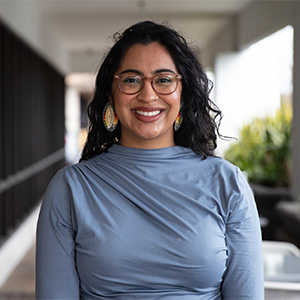
Briana Leyva
Briana Leyva (she/her) is the Mental Health Educator and Outreach Coordinator for the Latinx Community. She is the daughter of immigrants who came from Guerrero, Mexico. Her background lies in mental health and health advocacy. She is passionate about holistic wellness, health equity, and community involvement. Outside of work, Briana enjoys spending time with loved ones and being outdoors.
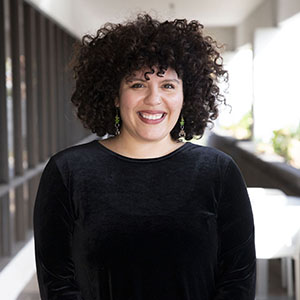
Vanessa Pineda
Vanessa Pineda (she/they) is the Program Manager and Mental Health Educator and Outreach Coordinator for the LGBTQ+ Community. They are a multi-generation Mexican who grew up in Sothern California. Vanessa holds a Masters of Social Work specializing in mental health as well as gender and sexuality. When not at work she likes to spend time with chosen family, travel and explore creativity.
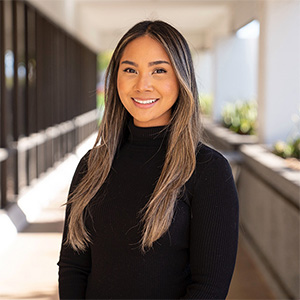
Jenny Seradilla
Jenny Seradilla (she/her) is the Mental Health Educator and Outreach Coordinator for the Asian/Pacific Islander Community. She is a second-generation Filipino who was born and raised in Honolulu, Hawai’i. She is an Associate Marriage and Family Therapist at a group private practice and specializes in Asian American mental health, somatic-based therapy, trauma, and anxiety. Outside of work, Jenny enjoys staying active through running and working out, going to the beach, exploring trails, cooking, and spending time with her dog
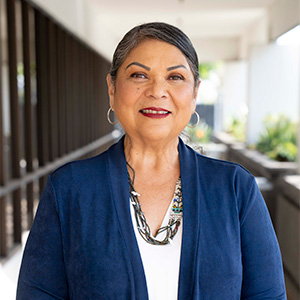
Grace Sesma
Grace Sesma (she/her), is the Educator and Outreach Coordinator for the Native American Community. She is a cultural practitioner of Yaqui descent with a background in mental health and traditional cultural practices. She serves on the Consciousness & Healing Initiative, is a member of the Kumeyaay-led Kanap Kuahan Coalition, as well as the Academy of Integrative Health & Medicine BIPOC Committee. Grace is Associated Faculty at the Southern California University of Health Sciences. Outside of work, she enjoys spending time with her family, painting, and being of service to the community.
